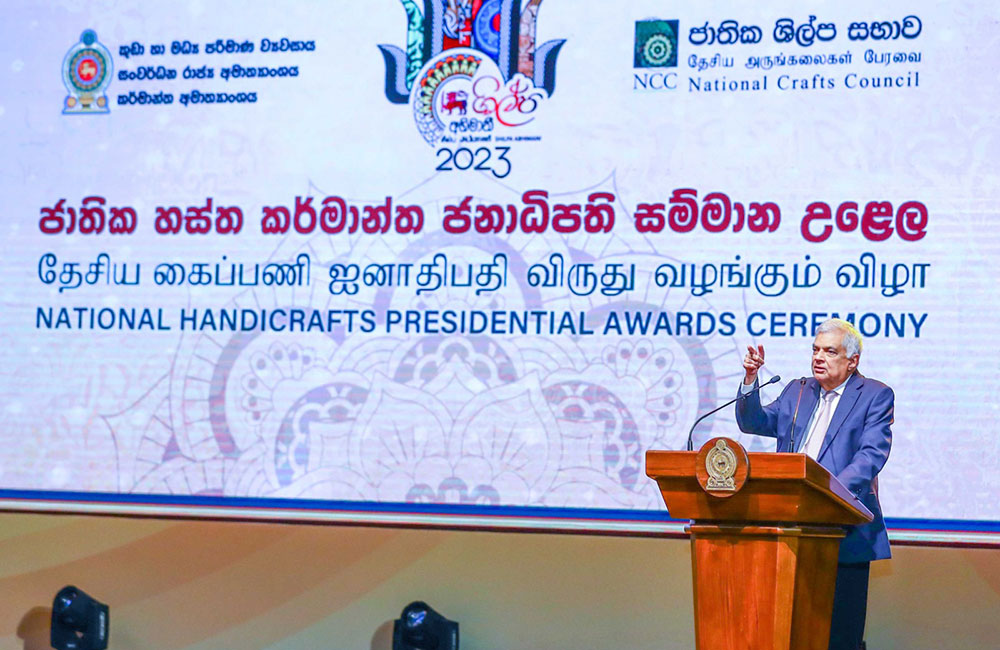Sri Lankan President Ranil Wickremesinghe has defended the government's decision to raise the Value Added Tax (VAT) from 15% to 18%, citing the nation's dire economic situation and the need for fiscal consolidation.
Addressing the "Shilpa Abhimani 2023" Presidential Handicraft Awards ceremony, Wickremesinghe explained the rationale behind the controversial measure.
The government's decision stems from a crucial agreement reached with the International Monetary Fund (IMF). As President Wickremesinghe stated, the agreement restricts the government from resorting to bank loans and printing money, previously relied upon to finance its operations. This necessitated alternative revenue-generating measures.
To bolster the government's income, the administration aims to achieve a revenue equivalent to 12% of GDP this year, with an ultimate target of 15%. With the restriction on traditional borrowing mechanisms, the VAT hike emerged as the primary avenue to achieve this goal.
President Wickremesinghe acknowledged the potential difficulties the VAT increase may cause for consumers and businesses. However, he emphasized that it is a necessary step towards economic stability. He stated, "These measures, albeit challenging, are essential for generating the necessary income, ultimately strengthening the rupee." He further warned that inaction could lead to dire consequences, including an uncertain economic future marked by potential shortages and a collapsed economy.
Addressing potential criticism, President Wickremesinghe welcomed alternative programs for economic recovery, but emphasized that any such program must be accompanied by a clear strategy to garner IMF support. He stressed the importance of avoiding currency devaluation, which he warned would have detrimental consequences.
He expressed optimism about the potential for economic recovery, predicting a gradual strengthening of the rupee by the end of the year.

Leave your comments
Login to post a comment
Post comment as a guest